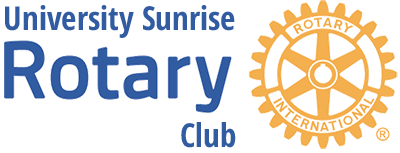Bruce Harrell served as a member of the Seattle City Council from District 2. He was first elected to the city council in 2007 and was re-elected in 2011 and 2015, and did not run again in 2019. In 2016, he was chosen as president of the city council. He also briefly served as acting Mayor of Seattle from September 13 to September 18, 2017.

Harrell was born in 1958 in Seattle, to an African American father who worked for Seattle City Light and a Japanese American mother who had been interned at Minidoka and worked for the Seattle Public Library. The Harrell family lived in the Central District and Bruce graduated from Garfield High School in 1976 as valedictorian of his class.
Harrell played as a linebacker at Garfield High School, where he was named to the all-Metro team. He went on to attend the University of Washington on a football scholarship, rejecting a spot at Harvard University, and played linebacker for the Washington Huskies football team from 1976 to 1979 (he is still ranked in the top ten all-time in tackles). At the University of Washington, Harrell earned a Bachelor of Arts degree in political science in 1980 and made the national Academic All-American First Team in football. Harrell earned a Juris Doctor from the University of Washington School of Law in 1984. In 1994, Harrell earned a master’s degree in organizational design and improvement from City University of Seattle.
In 2007, Harrell received the University of Washington Distinguished Alumni Award. In 2012, Harrell won the University of Washington’s Timeless Award Winner, and in 2013 he was inducted into the NW Football Hall of Fame.
After attending law school, Harrell joined US West, now CenturyLink, in 1987. Harrell was chief legal advisor to the Rainier Valley Community Development Fund, chief legal advisor to the First A.M.E. Church and First A.M.E. Housing Corporation, Chief Counsel to US West, and general counsel to the Alpha Phi Alpha fraternity, Zeta Pi Lambda chapter.
In addition to his legislative responsibilities, Harrell serves as Chair of the Puget Sound Regional Council’s Performance First Committee: a business development strategy of PSRC’s Prosperity Partnership; Advisory Board Chair for CASASTART; a focused strategy for youth with behavioral challenges at Seattle Public Schools; and, member of the Social Action Committee for First A.M.E. Church.
It is the policy of the University Sunrise Rotary Club to invite both of the primary winners of selected election races to speak to the club as independent programs. Mr. Harrell’s general election opponent has declined.
Here are the speaker notes from Club Member Scott Jamieson, Jim Miller, and Merrill Mayer:
Mayoral Candidate Bruce Harrell presented at today’s meeting. Bruce is a Seattle native, a University of Washington graduate and a lawyer who’s professional interest centered on telecom issues. Bruce was a member of the Seattle City Council for 3 terms, 2007-2019. He chose not to run in 2019 but decided to enter the race for mayor as he became increasingly troubled by what he saw happening in Seattle. He vows to help Seattle to return to the values that made us a great city by fighting to get Seattle “back to the basics” with his agenda.
Bruce told us that “what we are seeing in Seattle is Intolerable.” People are living in tents and on the street. We have to come up with a “human way to get people into housing.” Seattle currently spends a billion dollars to solve the homelessness problem. Seattle can find better ways to resolve the situation.
Bruce does not support the defunding of the police. He supports a “case management” model in order to provide improved response services. He supports improved training for 911 dispatchers, public safety officers and the traditional “gun and badge” police officers.
Bruce answered questions regarding a variety of issues. Paramount issues included the homelessness crisis in Seattle, where he stated that it is inhumane to have people sleeping on our streets and in tents and assured us that he will work with local/regional authorities to come up with a comprehensive plan to mitigate this problem. He asserted that we have the resources but have lacked the will to tackle this problem. He also made it clear that he intends to protect Seattle’s parks, making them a “safe place for kids to play.” He pointed out that the issue of affordable housing is a secondary yet related problem, resulting in “housing insecurity.” He supports the city’s partnership with various faith community programs regarding the homelessness crisis..
Bruce also addressed the decline into “tribal politics” and promised to work towards a collaborative system approach, especially when dealing with the City Council, who he termed a “thin resume council.” He vowed to work with the council yet promised to be a strong leader. “Parks, police and potholes” was an alliterative term used. He supports having Seattle’s districts have their issues addressed by their district’s elected council member.
Bruce also addressed the (recently extended) eviction moratorium and reviewed the desire of landlords to work with the city, yet noted that they are not being listened to by Seattle’s current administration. He pointed out that he is endorsed by the Rental Housing Authority and that the current situation will result in worse housing availability and affordability issues.
Bruce also favors promoting a healthy business environment in Seattle, resulting in more jobs. He does call for businesses to be good corporate citizens.




